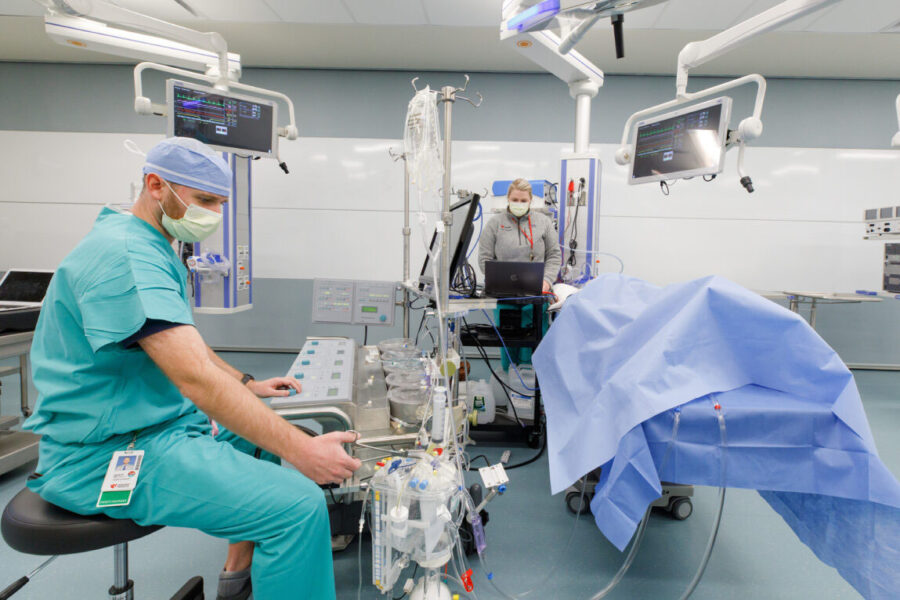The UNMC College of Allied Health Professions’ clinical perfusion program has established UNMC’s Clinical Perfusion Training and Simulation Program. It is one of just 11 such programs nationwide recognized as a high-fidelity simulation center by the American Board of Cardiovascular Perfusion.
“This designation provides evidence of two things: The high-quality education the clinical perfusion faculty provide our learners and the extraordinary outcomes that can be achieved through collaboration,” said Kyle Meyer, PhD, dean of the UNMC College of Allied Health Professions.
Scott Sanderson, clinical perfusion program director, who also now serves as the center’s administrative chair, said: “It is a wonderful recognition for our program of the high level of simulation we are providing our students, but it also now allows us to offer board-recognized continuing education simulation credits to our perfusion colleagues for perfusion clinical care improvement and practice.”
The designation means that UNMC meets American Board of Cardiovascular Perfusion criteria for high-quality simulation resources, effective utilization of those resources and a perfusion-centered curriculum that implements these aspects at a high standard to offer continuing educational events to actively practicing perfusionists.
Jenni Bouckhuyt, director, simulation operations, iEXCEL, worked with the clinical perfusion team. “The Clinical Perfusion Program at UNMC have made quality education a priority by utilizing high-fidelity simulation and learner assessment tools,” she said. “This program has been elevated to a new level by offering opportunities to master skills in a safe environment with real time feedback.”
As an American Board of Cardiovascular Perfusion-designated center, UNMC will serve not just as an educational resource but also as a continuing education resource, ensuring that perfusionists are practicing at the cutting edge of their profession.
The American Board of Cardiovascular Perfusion website notes that high-fidelity perfusion simulation is “the use of simulation modalities or mechanisms to create a realistic patient model or perfusion situation.” Specifically, simulation devices “must integrate realistic perfusion events experienced during cardiopulmonary bypass procedures in a manner similar to a realistic surgical setting using a conventional heart-lung machine or ECMO circuit.”
“The clinical perfusion program embodies the mission of iEXCEL by embracing the space and capabilities of our center in the development of their simulation sessions,” said Randi Peavy, iEXCEL’s manager of advanced surgical simulation. “Throughout our collaboration the simulations have been well-balanced and encompass the many complicated processes and skills involved in perfusion. The faculty incorporate critical thinking opportunities and hands on experience in a low stress environment that ultimately benefits future patients.”

Congrats to the whole Perfusion Team. You are the best of the best and it is wonderful to get that recognition on a national level!!
Congrats to the Perfusion Team and to the iEXCEL staff for all of the hard work. Awesome teamwork, and excellent program!